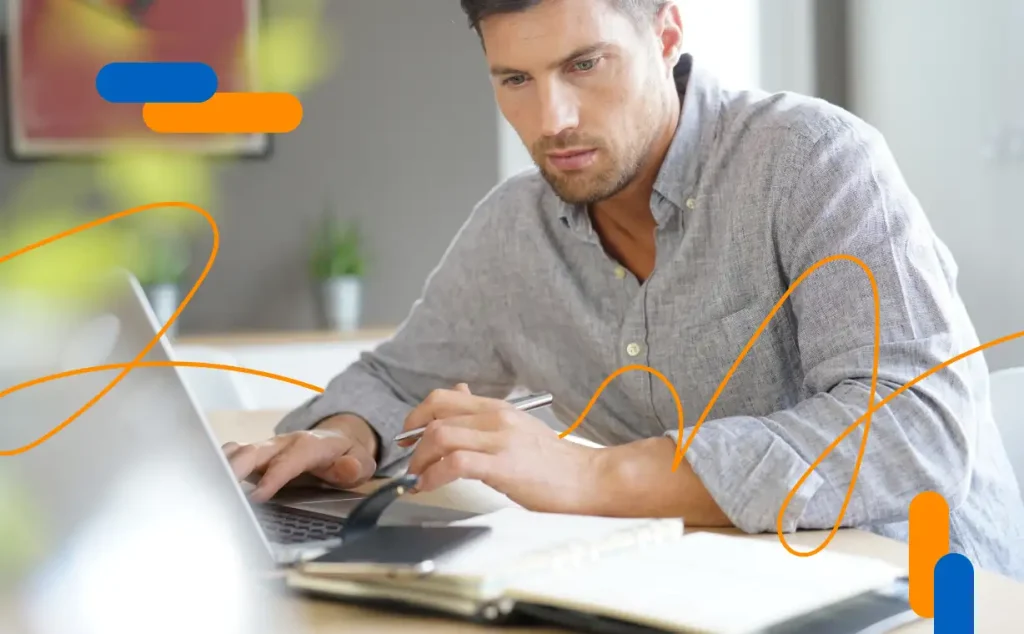Are you self-employed and looking to optimize your time and resources? Would you like to simplify the signing of documents and increase the security of your transactions? Electronic signature is the solution you need. In this article, you will discover how electronic signatures for self-employed can transform the day-to-day life of these professionals, from signing invoices to filing taxes. Adopting this technology is an essential step towards efficiency and modernization of your business.
I am self-employed, what is the electronic signature for?
As a self-employed, you know firsthand that technology is a fundamental point in business and that they use it on a daily basis. Ecommerce platforms or executing marketing strategies on social networks such as LinkedIn or Twitter are some examples. But so is having digital tools, as is the case of the electronic signature. This digital solution can help you in your day-to-day business:
- Sign and create electronic invoices
- Submit administrative requests
- Declare and settle taxes
- Fill in fields in models and forms of the Tax Agency
- All the procedures of public and private organizations, such as educational centers or professional associations.
I sign my documents by handwriting, why should I switch to electronic signatures?
You may think that printing documents and signing by hand when necessary is less tedious than using the digital format, but this is not the case. Traditional signing comes with a number of undeniable disadvantages: it usually involves waiting for all users to sign. Therefore, the best option is to take the leap.
The electronic signature is of great help when the document has to be signed by two or more people who are not in the same place and, therefore, cannot sign at the same time. It allows everyone to sign with our digital certificate from anywhere and from any device. Therefore, using this type of signature would imply greater efficiency and savings in time, paperwork and printing costs.
But, if there is one thing that makes electronic signatures stand out, it is that they are much more secure than handwritten signatures. Forging a digital signature is extremely difficult thanks to different mechanisms that it has incorporated. In fact, in the case of Viafirma‘s digital solutions, we are proud to say that we are one of the best options in the market for security, price and flexibility. Our API can be customized with your own tastes or your corporate image, and using it is easy.
New DAS Regulation, a key to European commercialization of the self-employed and SMEs
The advent of the elDAS Regulation in 2014 marked an unprecedented breakthrough in digital identification and trust services in the European Union. Now, its evolution, elDAS2, will promote wider adoption in all EU countries. For Alberto Malo, manager of the digital team at law firm Letslaw, the new regulation will expand opportunities for freelancers and SMEs to market products and services in the European community:
“It will make it easier for the self-employed and SMEs to operate in the European market, guaranteeing a much higher level of security in their transactions and enabling them to offer a more efficient shopping experience to European users”, Alberto Malo.
In addition, it will ensure a secure and reliable European digital marketplace for the self-employed and SMEs, characterized by:
- The introduction of the new European Digital Wallet. A single digital identity that will identify us regardless of the EU country we are in.
- Advantages in commercial operations.
- Homogenization of services.
Progress is not without its challenges
Although a promising international environment is approaching, its arrival is not without its challenges. The main one is the lack of knowledge of self-employed about the regulations and future implications. Few self-employed are digitally literate, and in many cases it does not include legislative norms. SMEs are not far behind either. In general, there can be technical complications when incorporating elDAS2-compliant measures and systems. This, together with a lack of knowledge on the subject, can lead to the new features offered by the European electronic system being pushed to one side and not taken advantage of.
Undoubtedly, if the self-employed and SMEs do not take into account the new regulations, this will put them at a disadvantage compared to the major competitors in the market, as it will change the rules of digital transactions. For that reason, constant digital training and visibility of opportunities should be a priority. From Viafirma, we offer the first Monday of each month the newsletter Tu Firma al Mes (Your Signature per Month). In it, we present you news on electronic signature: relevant current issues, success cases of our clients and frequently asked questions.
But, above all, as companies we care about helping you to streamline and grow your business. We differentiate ourselves from the competition by our human touch and our product, whose technology is 100% ours.
